Introduction:
Unstoppable is the rise of chatbots in the digital world, and chatbot marketing is making its way by burrowing to be a key component of modern marketing strategies. . One of the most transformative innovations in this space is chatbot marketing As AI technology is developing, chatbots are revolutionizing how businesses can communicate with customers and exercise bot marketing. Today, chatbot marketing has turned out to be an innovative medium for engaging with customers. It gave birth to meaningfull interactions between brands and their customers. Within this blog, we will explore the reality where Chatbot Marketing is taking shape; evolving the way Marketing Strategies are growing across Social Media, while promoting the overall Customer Experience
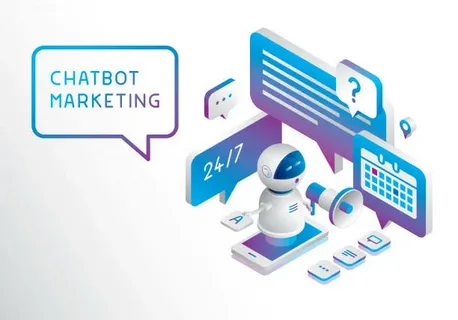
Table of Contents
Understanding Chatbot Marketing
Chatbot marketing is basically a practice of deploying chatbots as a tool to communicate with customers, answer their questions, and provide personalized experiences through conversational interactions. Within the last years, chatbots have taken an important place in the process of bot marketing-especially through social media-with their ability to conduct customer service, promote the products, and even sell them. The greatest advantages of chatbot marketing are the abilities it possesses to respond in real time, smooth the customer journey, and create a personalized experience-all this without human intervention.
For brands, this means a chatbot marketing strategy that unleashes the power of AI to deliver frictionless, interactive customer relationships for both prospective and current customers. This type of conversational AI supports a business in responding to its customers 24/7 and enables it to provide immediate responses to its customers to keep them satisfied.
Chatbots in Social Media: Game-Changing Bot Marketing
Due to the fact that social media plays a greater role in the buying process, companies utilize chatbots to extend their ability to manage and automate processes on Facebook, Instagram, and Twitter. Social media chatbots can be set up as a part of bigger bot marketing efforts that allow you to automatically answer the most common questions, offer personalized product recommendations, and even finalize the transaction.
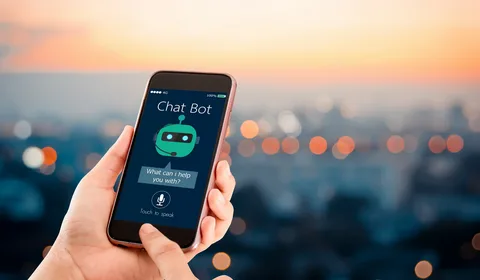
Integrating chatbots into social media has surely changed how companies converse with customers. It could be answering a query on Facebook Messenger or guiding a customer through with Instagram DMs; chatbot marketing opens another window to convenience and efficiency. For instance, a brand could set a strategy for chatbot marketing that would instantly begin conversing with customers commenting on posts or DM’ing the brand, offering help or suggesting related products.
AI in Chatbot Marketing
The heart of chatbot marketing lies with AI. AI-powered chatbots, through the action of natural language processing or NLP, comprehend customer queries and interpret them better, thus becoming increasingly more effective at engaging customers and delivering value by way of relevant responses. The integration of AI into the strategy of chatbot marketing has empowered businesses to offer extremely personalized and data-driven interactions.
One of the major benefits brought about by the use of AI-powered chatbots is that they learn from past interactions and, therefore, their responses keep improving. This, therefore, will mean that the customer journey will only continue to get more personalized and, therefore, enhanced. Secondly, conversational AI has made it possible for chatbots to conduct meaningful conversations with customers by responding to inquiries, just like a human would, hence helping businesses relate better to their audiences.
How Chatbots Can Improve the Customer Journey
The term customer journey describes the entirety of all touchpoints a customer has with a brand-from awareness to after-sales support. But chatbots, however, have evolved into an important tool in this journey of consistently improving the customer experience at each touchpoint.
For instance, it is possible that at an awareness stage, the introduction to the products or services of the brand is done by chatbots. It is considered that in the consideration stage, very specific questions about the products will be given by the chatbots based on customer preference for recommendations or for further information that may be of help when making decisions. Lastly, guiding a customer to conduct a transaction or offering real-time purchase support can be assigned to the chatbots at a decision stage.
Implementing chatbots along the path of the customer journey ensures that customers get timely responses while reducing frustration and therefore increasing satisfaction. It is only those businesses that actually integrate chatbot marketing into their overall marketing strategy that stand a better chance of increasing the engagement rate with an improved conversion rate.
Strategy for Chatbot Marketing: Building an Ecosystem of Conversational AI
A successful chatbot marketing strategy comes into place by proper planning, understanding, and meeting the needs of the customer. In an effective chatbot marketing strategy, AI-powered chatbots are integrated at every touch point in order to drive frictionless experiences, which are personalized across channels, from websites and social media to messaging platforms.
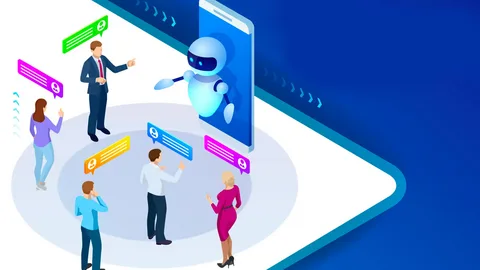
The key to creating an effective chatbot marketing strategy involves understanding exactly at which stages of the customer journey the customer will derive the most value from the chatbots. For instance, chatbots can be deployed on a brand’s website to welcome visitors and answer their basic inquiries or be placed onto social media to interact with customers in real time. The integration of conversational AI will provide relevant and human-like responses to the chatbots, thereby further enhancing the experience.
The other significant element of Chatbot Marketing Strategy involves the fact that chatbots need to learn continuously and, thus, keep improving. This is possible leveraging AI-driven analytics. It helps businesses to keep a tab on their chatbots’ performance over time and, hence, make data-driven improvements on such grounds.
The Power of Chatbots in Marketing Automation
The more important advantages of chatbots are that they bring much automation into several activities of marketing. Be it the generation of leads or customer service, chatbot marketing automates most of the routine-level interactions, freeing the business to focus on high-order marketing activities.
These can be used to capture leads by asking for contact information or even qualify the leads based on their responses to certain questions. Other than that, chatbots can also be used in follow-up automation through the sending of personalized messages at regular intervals to the lead with the intent of nurturing them until such a time when they are ready to purchase.
Automation of marketing with chatbots saves time and prolongs efficiency given that companies can handle high volumes without burdening their support teams, while customers appreciate getting quicker responses that are more personalized and will strike a positive chord in overall satisfaction ratings.
Chatbots and Customer Engagement: Building Relationships with AI
Basically, all marketing campaigns have customer engagement at their core. One fresh avenue where businesses are engaging their audiences is in chatbot marketing. Chatbots can be one of the great ways a brand can create personalized, interactive experiences that really develop the relationship with customers.
For example, it could implement a chatbot that would be able to make personalized recommendations of the products offered by the company, most likely depending on their past purchases or history of items browsed. Even further, chatbots may then be able to remember past interactions with customers and thereby provide them with specialized support.
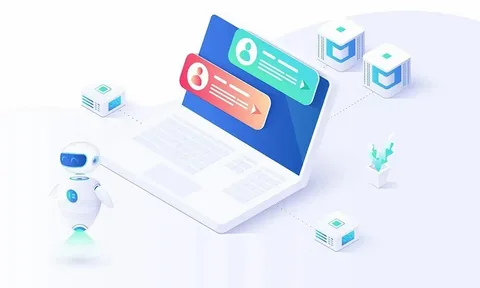
It is even possible, through the use of chatbots, to have real time dialogue between business and customer. Whether it be a question about the product for a customer or guiding them through the buying cycle, chatbots can respond instantly in order to create a satisfied and engaged customer.
The Future of Chatbot Marketing
While the technology of AI is still developing, so are chatbots. We will definitely see more integrations of chatbots in marketing strategies, since these bots will most likely be able to produce more advanced and personalized experiences.
This includes immense growth in conversational AI, among other areas. As AI continues to evolve into the future, chatbots will be able to handle conversations with customers that are far more complex for even more personal support. All this will afford companies the opportunity to create even deeper relationships with their customers and iron out even more creases in the overall customer journey.
Other future trends in chatbots include the integration of other emerging technologies, including voice search and augmented reality, into the use of chatbots. It is these that provide more immersive experiences for customers along with interactivity, further enhancing the efficiency of their chatbot marketing strategy.
Chatbot Marketing: The Future of Customer Engagement
Chatbot marketing is more than just a fad; it is now integrated into how businesses will be engaging customers online. Businesses today, with the rise of AI-powered chatbots and automation, are now able to manage customer inquiries and provide personalized experiences to their customers anytime, day or night. For modern businesses that maintain active social media lines, chatbot marketing is the go-to solution to engage customers in real time and at scale.
Businesses are outsourcing everything from customer support to bot marketing-things that would have required a whole army of workers. Today, chatbots have moved beyond just answering customer service queries to being a key element in marketing strategies with the objective of improving the customer journey. This broader view of chatbot marketing goes more deeply into how chatbots will upend customer interaction, marketing strategies, and indeed, the very way business is done.
Why Chatbot Marketing is so Important for Modern Businesses
In the time when customers need immediate responses and personalized experience, chatbot marketing allows them to fulfill those needs in an effective manner. Imagine entering a website and immediately being welcomed by a chatbot offering your assistance without needing to wait for responses from human customer support. Real-time interaction with your customers indeed leads to a more smooth and pleasant customer journey.
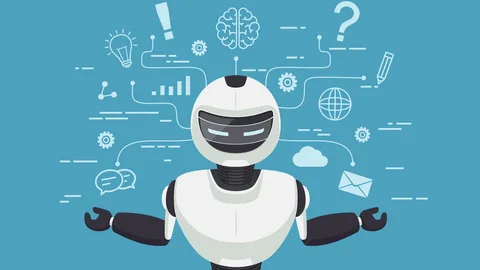
Businesses use chatbot marketing for customer query management, suggesting products, and even closing sales. For example, with bot marketing, businesses are enabled to automate marketing processes through personalized messages, answering frequently asked questions, and handling common tasks like booking appointments or processing transactions. What chatbot marketing has to its advantage primarily is the possibility of heightened efficiency while enhancing the overall experience for customers.
With more and more enterprises taking up chatbot marketing strategies, it goes without saying that the future will be undertaken by AI-powered chatbots. It is only AI that furnishes chatbots with the ability to learn from interactions, predict customer behavior, and hence propose recommendations with accuracy, therefore being a possession worth its weight in gold for any business willing to keep up in the competition.
How AI-Powered Chatbots Elevate Marketing Strategies
One of the strong suits of AI-powered chatbots surely must be the fact that they can analyze big sets of customer data for highly personalized experiences. With the help of AI and machine learning, chatbots study and analyze customer interactions, preferences, and behaviors, providing meaningful insights that can feed into marketing strategies.
To illustrate, a chatbot marketing strategy incorporates conversational AI by guiding customers through product selection depending on their preferences and previous purchases. This level of personal engagement in customer interaction serves to raise the customer journey because their shopping would be more relevant and fun.
Another key attribute of chatbot marketing involves giving organizations an opportunity to engage customers right from the creation of awareness through to the end of the marketing sales funnel. It can assist in the nurturing of leads and building relationships towards driving conversions, from awareness right through to after-sales follow-up. For this reason, too, chatbot marketing exerts a force on businesses for providing an end-to-end customer experience.
Businesses can also work more effectively by integrating AI-powered chatbots into their marketing mix, reducing human error and giving one cohesive brand voice across all touchpoints. From lead generation to customer service, to direct sales, chatbots powered by conversational AI are revolutionizing digital marketing.
Chatbots in Social Media Marketing
Social media has become the critical channel for businesses to connect with customers, and chatbot marketing makes up an important part of this enhancement in customer interaction. Social media chatbots will be specifically designed for user engagement on platforms like Facebook Messenger, Instagram, and Twitter by automating responses, answering queries, or even orders received through direct messages.
Perhaps one of the greatest positives when it comes to using chatbots via social media is the ability to offer instant, real-time support. Suppose a customer comments on a post or sends a direct message concerning a product. Rather than a wait for a response from a human representative, a chatbot can instantly give the product details, price information, or even a link to buy.
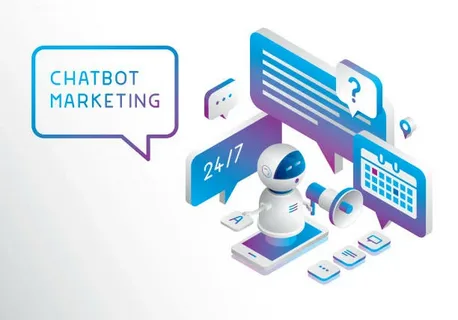
This will not only enrich the customer journey but also free human resources to do higher-value work. Besides, the social media chatbots can be integrated with bot marketing campaigns-promoting new products, offering exclusive discounts, and engaging customers at key moments in their lives, like holidays or sales events.
Automation of social media interactions means no opportunity is left untapped by the enterprise to engage with its future customers. This becomes highly relevant in these fast-moving times where customers expect quick responses on social media about their queries-a factor that greatly influences customer satisfaction and brand loyalty.
Conversational AI: The Future of Customer Engagement
The core of chatbot marketing is conversational AI, which is a technology enabling chatbots to hold conversations that are more natural and human-sounding. Conversational AI gives the ability to chatbots to understand and respond to customer inquiries in a personalized manner with which no human interaction has been experienced. This, however, has upped the ante for businesses who must provide a higher level of service not relying entirely on human agents.
For example, the conversational AI-powered chatbot would solve customer queries in much more intelligent ways compared to conventional rule-based chatbots. Instead of giving responses in pre-defined lines, conversational AI lets the chatbots understand the context behind the query and then provide only the relevant information, therefore making it feel smoother and natural.
With this development of AI, significant ramifications are found to occur in the field of chatbot marketing strategies. Conversational AI lets businesses create various dynamic and interactive customer experiences through personalized product recommendations, targeted marketing messages, or real-time customer support.
More importantly, with every passing day in the development of AI, conversational AI becomes even more capable of handling increasingly complex customer interactions, thus allowing the business to provide a higher grade of service while at the same time decreasing the burden on their customer support teams.
Chatbots and the Customer Journey: A Seamless Experience
The customer journey is an important tenet of any successful business, and chatbots ensure this very same journey to be as smooth as possible. Chatbots can be integrated at various touchpoints, right from a brand website to its social media touchpoints, making sure customers get the necessary assistance at every stage of their journey.
It can also welcome a customer who logs onto a website, for example-introduce them to the products, and walk them through buying. Even after the purchase, the same chatbot can keep serving and addressing their queries and may even suggest other products conforming to customer preference. By offering support right from the very beginning of a customer journey, the chatbots not only enhance the overall experience but also guarantee return business.
Companies using marketing chatbot strategies are often impressed by how their customers enjoy the speed, convenience, and personalization provided by chatbots. Besides that, chatbots reduce friction on a customer’s journey to avoid cart abandonment or dissatisfaction while waiting for faster response times.
Marketing Chatbots: The Secret to Driving Conversions
One major reason businesses use chatbot marketing is that it drives conversions. Whether to turn website visitors into leads or social media followers into paying customers, marketing chatbots do this efficiently in terms of engaging buyers and driving them toward making a purchase decision.
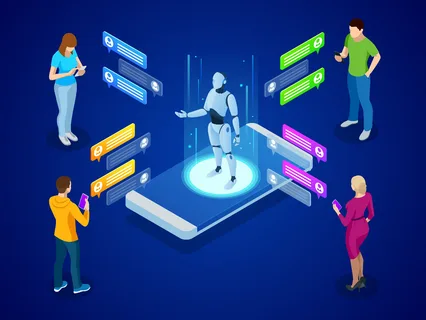
It can also be used by, for example, a chatbot to offer a customer who is browsing through an online store a special deal available only for a limited time or make item suggestions based on the customer’s browsing history. This kind of personalized marketing most definitely would motivate customers to purchase, yet at the same time assists the business in building a good relationship with its audience.
Also, chatbots can be used in upselling and cross-selling – the mention of products, which would complement what a customer may have already added into his or her cart. This tactic does two things: it increases the average order value and makes shopping easier on the customers by helping them find their required products.
Chatbot Marketing Strategy: Best Practices for Success
But for successfully reaping the benefit of chatbot marketing, it’s very important for a business to conceptualize a proper chatbot marketing strategy that works in tandem with the holistic goals and objectives. Well, here are some best practices while building an effective chatbot marketing strategy:
- Identify pain points in the Customer Journey: Knowing where it would make most sense to integrate chatbots-on social media, on a website, via a mobile app-depending on which stage a customer is at will help a company decide how chatbots can best serve their needs.
- Equally using AI, better personalization: Employing AI-powered chatbots, one can deliver personalized recommendations and responses. The more relevant this interaction, the higher the probability of customers being more engaged with the respective brand, hence buying from them.
- Always optimize with data: Chatbots need to learn and improve from their knowledge continuously with every passing day, based on the data of customer interactions. Perform analytics tracking on its performance and make necessary adjustments, which can help improve the chatbot marketing strategy over time.
- Channel Consistency: Make sure that chatbots provide consistent experiences at every touchpoint with the customer. Be it social media or any other website, messaging and tone should be consistent when a customer is talking to a chatbot.
- Balance automation with human touch: While chatbots can answer a great variety of questions and perform a lot of tasks, there are going to be instances where a human touch is going to be required. Make sure customers easily can escalate an issue they might have to a live agent if needed, route inquiries using chatbots for triaging and sending them to the appropriate people.
Conclusion:
Nowadays, businesses must find ways to speak with their audiences, differentiate themselves from at least some of the competition, and stay ahead of emerging trends. Chatbot marketing provides that opportunity in one-on-one timely or up-to-the-minute interactions that enhance the overall customer journey.
This would allow them to extend better engagement and more personalized experiences to customers, covering customer service automation in their marketing strategies. Be it through social media, websites, or messaging platforms, chatbots really help companies make more meaningful connections with their customers.
This means that as the technology of AI continues to evolve further, the role of chatbot marketing will also evolve. Companies that employ progressive chatbot marketing strategy tend to position themselves for long-term success not only in customer interaction but in online marketing as well. Next Blog Post




